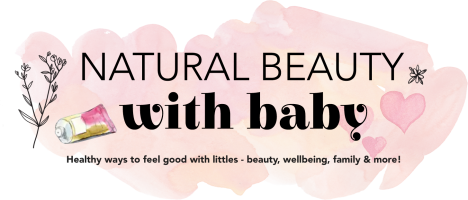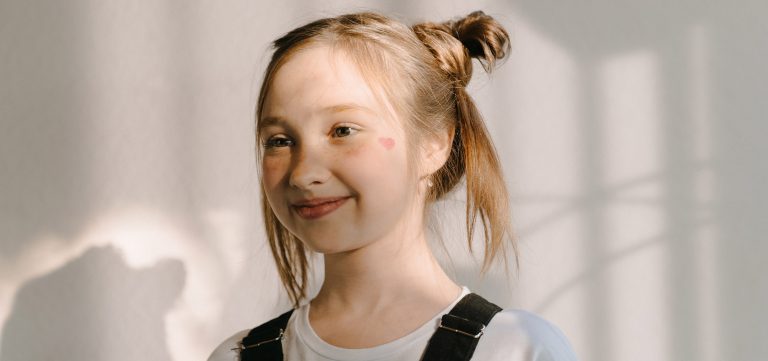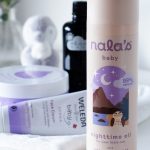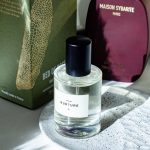“How to choose a perfume for your little one & what to consider” is a collaborative post.
As a parent, it’s important to be mindful of the products you use on your toddlers. From the food they eat to the toys they play with, every decision can impact their health and well-being. This is especially true when it comes to choosing personal care products like perfumes.
Many commercial perfumes contain harmful chemicals that can be dangerous to their health. These chemicals can cause skin irritation, allergies, and even more serious health issues over time. Here are some examples of what you should avoid:
Synthetic fragrances
Many perfumes contain synthetic fragrances, which are chemical compounds designed to mimic the scent of natural substances. These fragrances can be irritating to the skin and may cause allergic reactions.
Phthalates
Phthalates are a group of chemicals commonly used in perfumes to help the scent last longer. They have been linked to a variety of health problems (including hormone disruption and reproductive issues).
Parabens
Parabens are a type of preservative commonly used in perfumes and other personal care products to extend their shelf life. They have been linked to cancer and may disrupt hormone function.
Formaldehyde
Formaldehyde is a chemical used in some perfumes as a preservative. It is a known carcinogen and can cause irritation to the skin, eyes, and respiratory system.
Triclosan
Triclosan is an antimicrobial chemical commonly found in perfumes and other personal care products. It has been linked to hormone disruption and may contribute to the development of antibiotic-resistant bacteria.
What to consider when choosing a non-toxic perfume for your little one
Make sure to avoid the ingredients mentioned: synthetic fragrances, phthalates, and preservatives like parabens are common ingredients found in commercial perfumes that you should avoid. As mentioned, these chemicals have been linked to a variety of health problems, including hormone disruption, cancer, and reproductive issues.
Natural vs. synthetic fragrances: If you’re looking for a more natural option, consider choosing a perfume made with essential oils instead of synthetic fragrances. Essential oils are derived from plants and are generally considered to be safer for use on the skin (but you should always mix it with carrier oil, and also make sure which oil you use and how much of it).
Certification labels and seals of approval: Look for certifications and seals of approval from organisations like the Environmental Working Group (EWG) or the Natural Products Association (NPA). These organisations rigorously test and certify products to ensure they meet certain standards for safety and effectiveness.
Research the perfume & brand (beyond scent)
Before purchasing a perfume, take some time to research the brand and read the ingredient list. If you’re unsure about any of the ingredients, seek advice from your healthcare provider or a dermatologist. They can provide valuable information on the potential risks and benefits of specific perfumes or ingredients.
Top recommendations for non-toxic perfumes for children
Petit Et Mamans EDT by Bvlgari: A fragrance designed for both mothers and children. It features floral base notes of iris, vanilla, and peach, with middle notes of sunflower, rose, and chamomile. According to the perfume review and database website, HeyScent, not only the scent is great, but also “the packaging of this perfume is cheerful and it’s going to make it super attractive to little ones”.
Weleda Children’s Garden: This brand offers a variety of natural perfumes made with essential oils and plant extracts. They are certified by the NPA and are free from synthetic fragrances, colours, and preservatives.
Noodle & Boo Super Soft Lotion: This lotion contains a subtle, natural fragrance made with essential oils and is free from harsh chemicals and synthetic fragrances. It is also dermatologist-tested and hypoallergenic.
Bekind Perfume Oil: This brand offers a variety of natural perfume oils made with essential oils and plant extracts. They are free from synthetic fragrances and other harsh chemicals.
Takeaways
- Choosing a fragrance for your little one is a little more than just what smells good. It’s an important decision that could impact their health and well-being.
- Make sure to consider ingredients, natural vs. synthetic fragrances, and certifications, you can feel confident that you are making a safe and healthy choice for your child.
- Don’t be afraid to take the time to research and seek advice from trusted sources to ensure you are making the best decision for your little one.
We hope you enjoyed this article on how to choose a perfume for your little one & what to consider. You might also like natural perfume for pregnancy, and how to choose truly natural baby care products.






